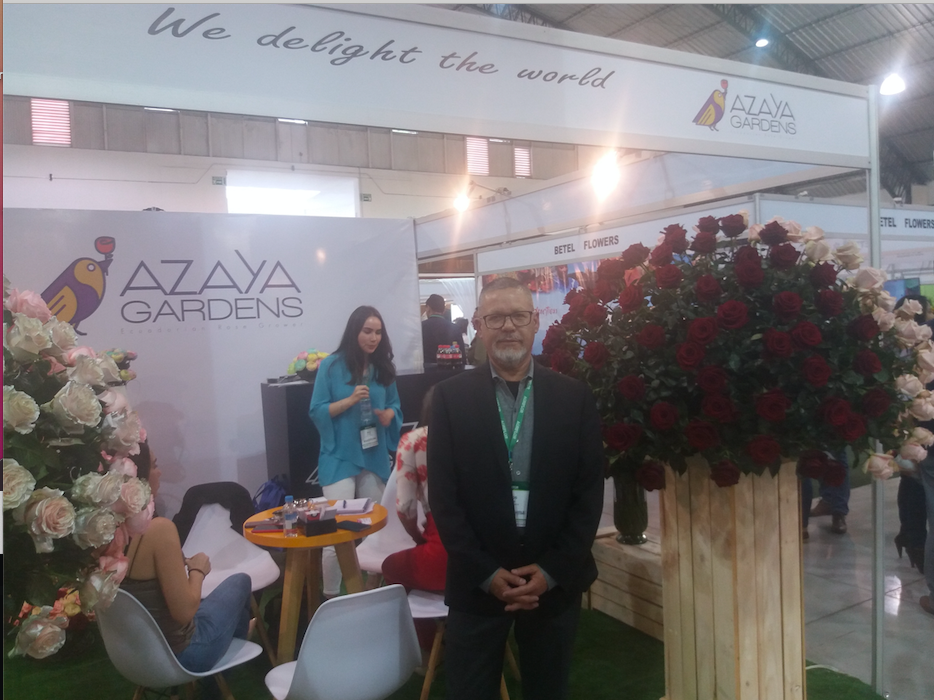Carlos Proaño of Azaya Gardens grows roses at an 11-ha farm in Ecuador. He’s noticed an increase in competition and supply. “That doesn’t help the trade. But we’re trying to keep calm, we’ve experienced these kinds of fluctuations before.”
When did it all begin for Azaya?
“That was no less than 28 years ago. I’d been working with a rose company for a while, where I’d learned a lot about the cultivation and the market. When I had the funds, I started out for myself, with this farm.”
How’s business these days?
“I can’t complain, we’re still making a profit. Customers love our flowers. We’re trying to differentiate in a market characterised by the increasing supply. The number of flowers brought to the market is huge. Flowers from Africa were added quite a few years ago. Our focus is on quality; we want to ensure that the colours don’t fade and that the end customer gets to enjoy a long vase life. We can also supply larger flowers, with stems of up to 1.2 metres and big flower heads.”
Where does your produce end up?
“We currently have an average daily production of 22,000 roses and our main market is Russia. That’s where sixty percent of our produce ends up. The rest of our customers are based in countries like the United States, Canada and the European Union. We sell to agents as well as florists.”

What are your ambitions?
“Working in a responsible manner, respecting the rights of employees and suppliers, as well as the environment, and producing export-quality flowers to ensure that our customers across the different international markets will continue to appreciate our brand. At the moment, we are Flor Ecuador certified, which guarantees an environment-friendly production process, responsible use of pesticides and compliance with workers’ rights. We’re also members of the BASC programme, which was established to promote secure international trade.”
What impact did the unrest, the strike of last October, have on your business?
“Our company wasn’t directly attacked by protesters during the national strike last October. We did stop all activities for a few days though, to protect our employees. We also had some difficulty getting our flowers to Quito airport. But luckily, we didn’t really suffer any financial losses or material damage. That wasn’t the case for all floriculture companies. Some farms were directly attacked, installations were damaged, and employees were threatened.”
What do you do in your spare time?
“I play golf at the nursery, which has its own course. I’m also interested in world history and I like reading, spending time with my friends and family and visiting football matches of my favourite team L.D.U. [Liga, ed.].”
What did you think of the Agriflor trade fair in Quito?
“It was clear that competition and supply have increased. That doesn’t help the trade. But we’re trying to keep calm, we’ve experienced these kinds of fluctuations before. Exports always have a positive cycle of a few years followed by a negative cycle, during which supply increases and prices go down. We usually try to exhibit at fairs outside Ecuador too. This year, we’re in Shanghai, China, and the Netherlands, and next year, we’re exhibiting at Expoflor Ecuador, as well as a fair in Russia.”
Carlos Proaño
Company: Azaya Gardens
Age: 61
Crop: 53 different varieties of roses in different colours; 120 employees, 11 hectares.
Location: Tabacundo (near the Cayambe Volcano, northeast of Quito)









